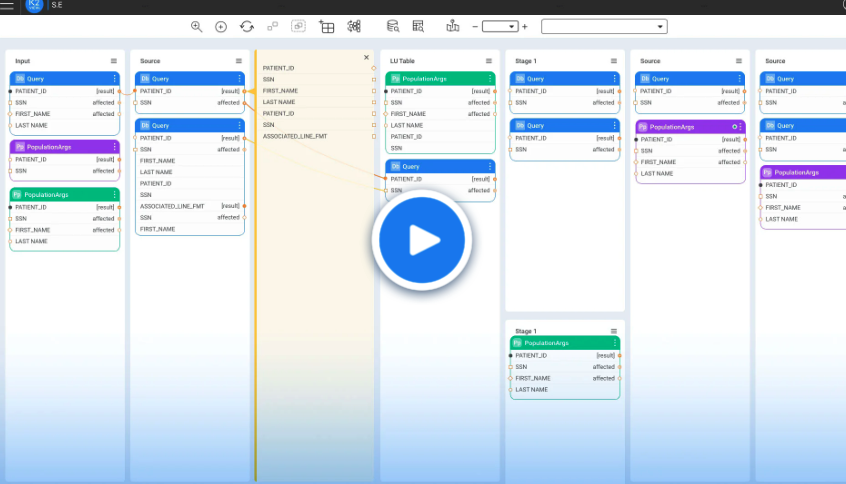This test data management tools comparison overviews the companies and software platforms available on the market and examines the pros and cons for each.
Overview of the Test Data Management Tools Market
The test data management tools market is characterized by intense competition, with both established players and emerging startups vying for market share. Key players in the space include legacy providers, as well as new challengers who are innovating according to changing needs and technological advancements. These tools serve a diverse range of industries, from finance and healthcare to e-commerce and software development.
As data privacy concerns and the need for agile development practices continue to grow, the test data management tools market is expected to expand, with innovations in data masking, synthetic data generation, and seamless integration with DevOps and CI/CD pipelines driving its evolution. Furthermore, cloud-based test data management solutions are gaining prominence, enabling organizations to scale their test data management capabilities as needed to reduce infrastructure overheads.
Get the latest Gartner report on test data management.
Test Data Management Tools: Comparing Functionality
Modern test data management tools often provide functionality like data masking, data subsetting, and synthetic data generation – all of which aid in creating realistic and compliant test data. When comparing the different tools available on the market, it’s important to consider the core functionalities that any test data management tool should have.
- Multi-source data extraction
Most enterprises use a combination of data sources, which can include everything from legacy systems, SQL and NoSQL databases, unstructured documents, and more. A good test data management tool needs to be able to take data from all these sources and keep up with the latest on-prem and cloud technologies – so that as you upgrade your tech stack, your test data management tool can keep up. Note: Data virtualization vendors are typically able to connect to traditional databases, but not to the newer NoSQL data stores. - Quick access to test data
Teams need to be able to run tests for software functionality with complete, fresh data from production sources. For example, when recreating bugs reported in production, the ability to provision a specific data subset from production, on demand, becomes a necessity. The same holds true for rolling back to previous versions when defects in the test data are detected during regression testing. - Test data subsetting
Look for a test data management tool that can provision data from multiple sources and then subset the data based on your chosen parameters and business logic to grab the needed test data in minutes. - Compliance with data privacy laws
Test data management tools play a crucial role in adhering to data privacy regulations like GDPR, CCPA, and HIPAA, as they allow for data anonymization (of PII/PHI, for instance) while maintaining the integrity and usability of the test data.
Legacy Test Data Management Tools Comparison 1
Since 2008, legacy test data management tools providers like CA Broadcom, IBM Optim, and Informatica have been pioneers in the industry. Their approach has been to extract data from production environments and store this data in a test data warehouse. After masking, teams could provision the test data. They tend to offer various capabilities as separate modules/licenses, because these evolved over time and therefore often have a separate UI.
- Pros
With a long time in the market, these tools are field-proven with extensive experience at large enterprises. They’re able to integrate with many different data sources and can move data from place to place. They also feature the core functionality that’s a must in any tool you choose, such as data subsetting. In addition, some integrate with specific packaged apps, such as SAP, PeopleSoft, and Oracle E-Business. - Cons
However, over the years, these solutions haven’t innovated the product enough to align with changing consumer needs. With outdated, clunky UI and outdated architecture, they’re not keeping up with the times and many users are discovering that their lack of investment in future test data management capabilities.
Delphix Test Data Management Tools Comparison 2
Delphix has a different approach than other solutions, focusing instead on data virtualization as opposed to persistent data storage.
- Pros
The biggest benefit of Delphix is speed. It can rapidly create and dismantle an entire test environment, which is great for teams who want to maintain high levels of agility. Additionally, it provisions data on demand, reducing data staleness in lower environments and enhancing overall testing quality. It also excels at data compression when the test data is virtually stored. Plus, because physical data copies are not stored in target environments, Delphix reduces storage costs and minimizes redundancy. - Cons
Delphix supports conventional databases but not newer ones like NoSQL. Additionally, virtualized tools can’t provision a subset of data without using complex scripts or third-party tools.
Data virtualization solutions like Delphix depend on a master replica of production sources, so test data can’t be copied or moved from one environment to another. Instead, the new test environment needs to be completely rebuilt. All of this means that testers need to do quite a bit of work to figure out how to find the data they need for specific test scenarios.
Datprof Test Data Management Tools Comparison 3
Datprof is an up-and-coming challenger who’s proven they’re able to accomplish a lot with a small team.
- Pros
Overall, Datprof has an innovative, interesting solution with a potentially promising future. - Cons
While they’re a tool to keep an eye on, their current capabilities may not be suited for enterprises with complex data environments. Considering the necessary investment to get a test data management tool integrated into your existing stack, it’s important to choose a vetted company, such as those in Gartner’s Magic Quadrant.
K2view Test Data Management Tools Comparison 4
Of course, we’d be remiss to do an analysis on the market competitors without tooting our own horn. Here’s how K2tdm stacks up.
- Pros
K2view has a unique entity-based test data management approach, provisioning data by business entities (like customers, orders, or products) to accelerate software delivery, maximize test coverage, and increase tester productivity.
Key goals for any test data management tool are to minimize the time it takes to provision test data, and to maximize test coverage. With its ability to integrate with past, present, and future data sources, K2tdm makes it possible to provision realistic test data on demand. It also has data masking and synthetic data generation functionality built in. - Cons
K2view’s comprehensive “all-in-one” would probably be overkill for smaller companies with just a few straightforward data sources and/or simple environments.
Recognized as a Visionary by Gartner, K2view has an enterprise-grade solution that simplifies and accelerates test data access across a broad organization.
Learn more about K2view Test Data Management software.













